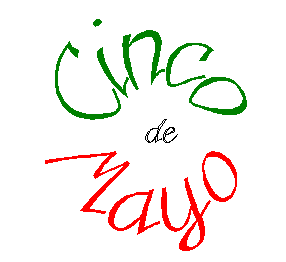


�U�n�d�e�r� �t�h�e� �p�r�e�t�e�x�t� �o�f� �f�o�r�c�i�n�g� �p�a�y�m�e�n�t� �f�o�r� �M�e�x�i�c�o�'�s� �o�u�t�s�t�a�n�d�i�n�g� �a�n�d� �c�r�i�p�p�l�i�n�g� �d�e�b�t�,� �B�r�i�t�a�i�n�,� �S�p�a�i�n� �a�n�d� �F�r�a�n�c�e� �s�e�n�t� �t�r�o�o�p�s� �t�o� �M�e�x�i�c�o�.� �T�h�e� �d�e�m�o�c�r�a�t�i�c�a�l�l�y� �e�l�e�c�t�e�d� �g�o�v�e�r�n�m�e�n�t� �o�f� �P�r�e�s�i�d�e�n�t� �B�e�n�i�t�o� �J�ua�r�e�z� �m�a�d�e� �a�g�r�e�e�m�e�n�t�s� �w�i�t�h� �t�h�e� �B�r�i�t�i�s�h� �a�n�d� �t�h�e� �S�p�a�n�i�s�h�,� �w�h�o� �p�r�o�m�p�t�l�y� �r�e�c�a�l�l�e�d� �t�h�e�i�r� �a�r�m�i�e�s�,� �b�u�t� �t�h�e� �F�r�e�n�c�h� �s�t�a�y�e�d�.� �
E�m�p�e�r�o�r� �N�a�p�o�l�e�o�n� �I�I�I� �w�a�n�t�e�d� �t�o� �s�e�c�u�r�e� �F�r�e�n�c�h� �d�o�m�i�n�a�n�c�e� �i�n� �t�h�e� �f�o�r�m�e�r� �S�p�a�n�i�s�h� �c�o�l�o�n�y�,� �i�n�c�l�u�d�i�n�g� �i�n�s�t�a�l�l�i�n�g� �o�n�e� �o�f� �h�i�s� �r�e�l�a�t�i�v�e�s�,� �A�r�c�h�d�u�k�e� �M�a�x�i�m�i�l�i�a�n� �o�f� �A�u�s�t�r�i�a�,� �a�s� �r�u�l�e�r� �o�f� �M�e�x�i�c�o�.� �A�l�t�h�o�u�g�h� �A�b�r�a�h�a�m� �L�i�n�c�o�l�n� �r�o�u�n�d�l�y� �c�o�n�d�e�m�n�e�d� �N�a�p�o�l�e�o�n�'�s� �i�m�p�e�r�i�a�l�i�s�t� �a�m�b�i�t�i�o�n�s� �i�n� �a� �n�e�i�g�h�b�o�r�i�n�g� �c�o�u�n�t�r�y�,� �h�e� �w�a�s� �u�n�a�b�l�e� �t�o� �a�s�s�i�s�t� �M�e�x�i�c�o� �a�s� �t�h�e� �U�n�i�t�e�d� �S�t�a�t�e�s� �w�a�s� �e�m�b�r�o�i�l�e�d� �i�n� �t�h�e� �A�m�e�r�i�c�a�n� �C�i�v�i�l� �W�a�r� �a�t� �t�h�e� �t�i�m�e�.
Confident of a quick victory, 6,500 French soldiers marched on Mexico City to seize the capital before the Mexicans could muster a viable defense. Along their march, the French already encountered stiff resistance before Zaragoza struck out to intercept the invaders.
The battle between the French and Mexican armies occurred on May 5 when Zaragoza's ill-equipped militia of 4,500 men encountered the better armed French force.
However, Zaragoza's small and nimble cavalry units were able to prevent French dragoons from taking the field and overwhelming the Mexican infantry. The dragoons removed from the main attack, the Mexicans routed the remaining French soldiers with a combination of their tenacity, inhospitable terrain, and a stampede of cattle set off by local peasants. The invasion was stopped and crushed.
Unfortunately, Zaragoza won the battle but lost the war. The French Emperor, upon learning of the failed invasion, immediately dispatched another force, this time numbering 30,000 soldiers. By 1864, they succeeded in defeating the Mexican army and occupying Mexico City. Archduke Maximillian became Emperor of Mexico.
�M�a�x�i�m�i�l�i�a�n�'�s� �r�u�l�e� �w�a�s� �s�h�o�r�t�-�l�i�v�e�d�.� �M�e�x�i�c�a�n� �r�e�b�e�l�s� �o�p�p�o�s�e�d� �t�o� �h�i�s� �r�u�l�e� �r�e�s�i�s�t�e�d�,� �s�e�e�k�i�n�g� �t�h�e� �a�i�d� �o�f� �t�h�e� �U�n�i�t�e�d� �S�t�a�t�e�s�.� �O�n�c�e� �t�h�e� �A�m�e�r�i�c�a�n� �C�i�v�i�l� �W�a�r� �w�a�s� �o�v�e�r�,� �t�h�e� �U�.�S�.� �m�i�l�i�t�a�r�y� �b�e�g�a�n� �s�u�p�p�l�y�i�n�g� �M�e�x�i�c�a�n�s� �w�i�t�h� �w�e�a�p�o�n�s� �a�n�d� �a�m�m�u�n�i�t�i�o�n�,� �a�n�d� �b�y� �1�8�6�7�,� �t�h�e� �r�e�b�e�l�s� �f�i�n�a�l�l�y� �d�e�f�e�a�t�e�d� �t�h�e� �F�r�e�n�c�h� �a�n�d� �d�e�p�o�s�e�d� �t�h�e�i�r� �p�u�p�p�e�t� �E�m�p�e�r�o�r�.� �T�h�e� �M�e�x�i�c�a�n� �p�e�o�p�l�e� �t�h�e�n� �r�e�e�l�e�c�t�e�d� �J�uÿý�r�e�z� �a�s� �p�r�e�s�i�d�e�n�t�.
�C�o�n�t�r�a�r�y� �t�o� �p�o�p�u�l�a�r� �b�e�l�i�e�f� �i�n� �t�h�e� �U�n�i�t�e�d� �S�t�a�t�e�s�,� �C�i�n�c�o� �d�e� �M�a�y�o� �d�o�e�s� �n�o�t� �m�a�r�k� �M�e�x�i�c�a�n� �I�n�d�e�p�e�n�d�e�n�c�e� �Da�y�.� �T�h�a�t� �d�i�s�t�i�n�c�t�i�o�n� �i�s� �r�e�s�e�r�v�e�d� �f�o�r� �'D�i�e�c�i�s�i�s� �d�e� �s�e�p�t�i�e�m�b�r�e'� �(�S�e�p�t�e�m�b�e�r� �1�6�)�,� �w�h�i�c�h� �i�s� �c�e�l�e�b�r�a�t�e�d� �o�n� �t�h�e� �n�i�g�h�t� �o�f� �S�e�p�t�e�m�b�e�r� �1�5� �t�h�r�o�u�g�h� �t�o� �t�h�e� �e�a�r�l�y� �m�o�r�n�i�n�g� �h�o�u�r�s� �o�f� �S�e�p�t�e�m�b�e�r� �1�6� �w�i�t�h� �a� �r�e�-�e�n�a�c�t�m�e�n�t� �o�f� �t�h�e� �G�r�i�t�o� �d�e� �D�o�l�o�r�e�s� �-�� �t�h�e� �f�o�r�m�a�l� �c�a�l�l� �f�o�r� �a�n� �e�n�d� �t�o� �S�p�a�n�i�s�h� �r�u�l�e� �i�n� �1�8�1�0� �-�� �a�t� �a�l�l� �e�x�e�c�u�t�i�v�e� �g�o�v�e�r�n�m�e�n�t� �b�r�a�n�c�h� �o�f�f�i�c�e�s�'� �c�o�u�r�t�s� �(�f�r�o�m� �t�h�e� �P�r�e�s�i�d�e�n�t� �d�o�w�n� �t�o� �t�h�e� �m�u�n�i�c�i�p�a�l� �g�o�v�e�r�n�m�e�n�t�s�)�. Read more ...